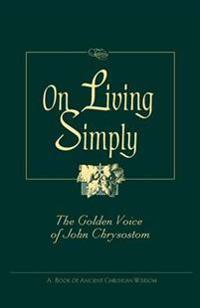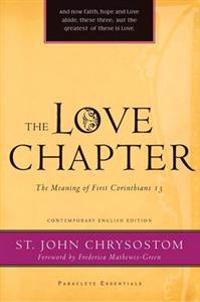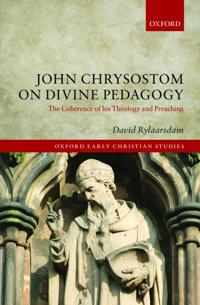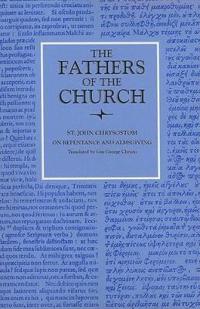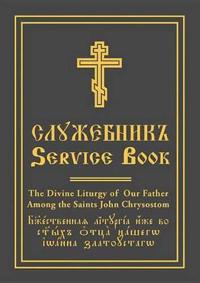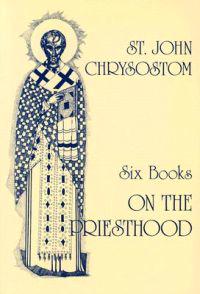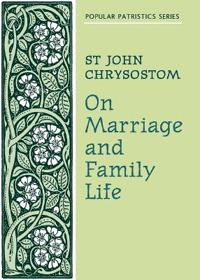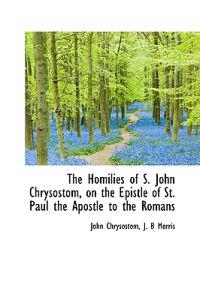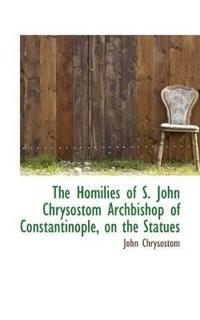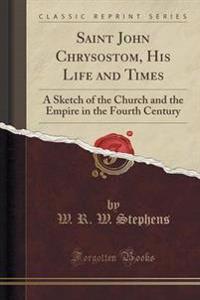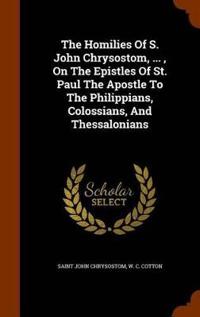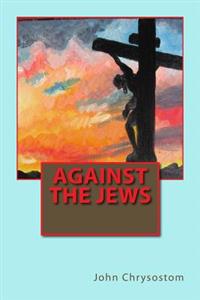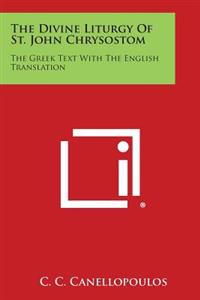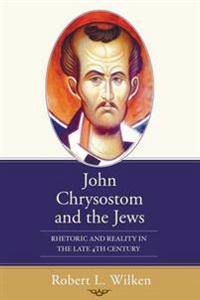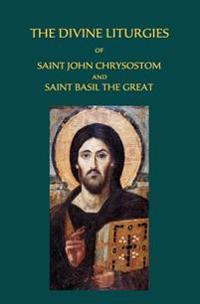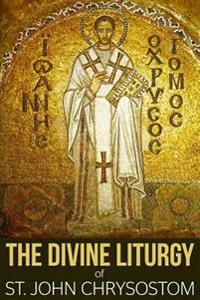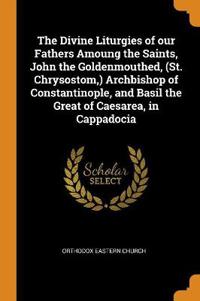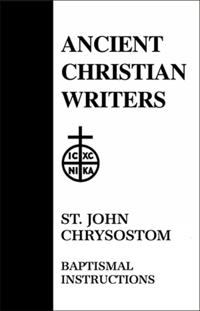On Living Simply: The Golden Voice of John Chrysostom (Häftad)
avJohn Chrysostom, Saint John VII
ISBN: 9780764800566 - UTGIVEN: 1997-03The Love Chapter (Pocket)
avSaint John Chrysostom, Frederica (FRW) Mathewes-Green, Saint John Chrysostom
ISBN: 9781557256683 - UTGIVEN: 2009-11John Chrysostom on Divine Pedagogy
ISBN: 9780198715382 - UTGIVEN: 2014-11Contrary to the portrayals of Chrysostom as a theologically impaired, moralizing sophist, this book argues that his thinking is remarkably coherent when it is understood on his own terms and within his culture. Chrysostom depicts God as a teacher of philosophy who adaptably guides people toward salv[...]
Theatrical Shows and Ascetic Lives: John Chrysostom's Attack on Spiritual Marriage (Övrig)
avBlake Leyerle
ISBN: 9780520215580 - UTGIVEN: 2001-07-04This book provides an original and rewarding context for understanding the prolific fourth-century Christian theologian John Chrysostom and the religious and social world in which he lived. Blake Leyerle analyzes two highly rhetorical treatises by this early church father attacking the phenomenon of[...]
St. John Chrysostom on Repentance and Almsgiving (Pocket)
avGus George (TRN) Christo
ISBN: 9780813214504 - UTGIVEN: 1997-11The Divine Liturgy of Our Father Among the Saints John Chrysostom (Inbunden)
avHoly Trinity Monastery
ISBN: 9780884653424 - UTGIVEN: 2013-11This convenient pocket-size book contains the necessary texts for the celebration of the liturgy of St. John Chrysostom by the priest and deacon, interpolated with comprehensive rubrical directions. Texts sung by the choir are also shown. The parallel format gives the Church Slavonic texts on the le[...]
St John Chrysostom
ISBN: 9780913836385 - UTGIVEN: 1996-07The stylistic brilliance of this work demonstrates the appropriateness of St John's title, "the golden-mouthed, " and his gift for linking concrete observation and theological vision.[...]
On Marriage and Family Life (Häftad)
avSaint John Chrysostom
ISBN: 9780913836866 - UTGIVEN: 1987-10The Homilies of S. John Chrysostom, on the Epistle of St. Paul the Apostle to the Romans
ISBN: 9781115610285 - UTGIVEN: 2009-10This is a pre-1923 historical reproduction that was curated for quality. Quality assurance was conducted on each of these books in an attempt to remove books with imperfections introduced by the digitization process. Though we have made best efforts - the books may have occasional errors that do not[...]
The Homilies of S. John Chrysostom Archbishop of Constantinople, on the Statues (häftad)
ISBN: 9781116384390 - UTGIVEN: 2009-11The Homilies of S. John Chrysostom, ..., on the Epistles of St. Paul the Apostle to the Philippians, Colossians, and Thessalonians
ISBN: 9781345698596 - UTGIVEN: 2015-10The Divine Liturgy of St. John Chrysostom: The Greek Text with the English Translation (häftad)
ISBN: 9781494008895 - UTGIVEN: 2013-10The Divine Liturgies of Saint John Chrysostom and Saint Basil the Great (häftad)
ISBN: 9781872897172 - UTGIVEN: 2015-03A History of the Liturgy of St. John Chrysostom: Vol. V, the Precommunion Rites (häftad)
ISBN: 9788872103265 - UTGIVEN: 2000-01Employing the methods of Comparative Liturgy, Taft locates his study of the Byzantine tradition within the broader context of liturgical history. The analysis of each liturgical component of the Byzantine precommunion and the respective accompanying formulas is accompanied at each step by an analysi[...]
Baptismal Instructions (Häftad)
avChrysostom John
ISBN: 9780809102624 - UTGIVEN: 1962-01This series of eight instructions on baptism were given by St. John Chrysostom, probably at Antioch about 390. Their interest lies in Chrysostom's activity as a mystagogue for the baptismal candidates and as their instructor in Christian doctrine and morality immediately after their initiation.[...]

